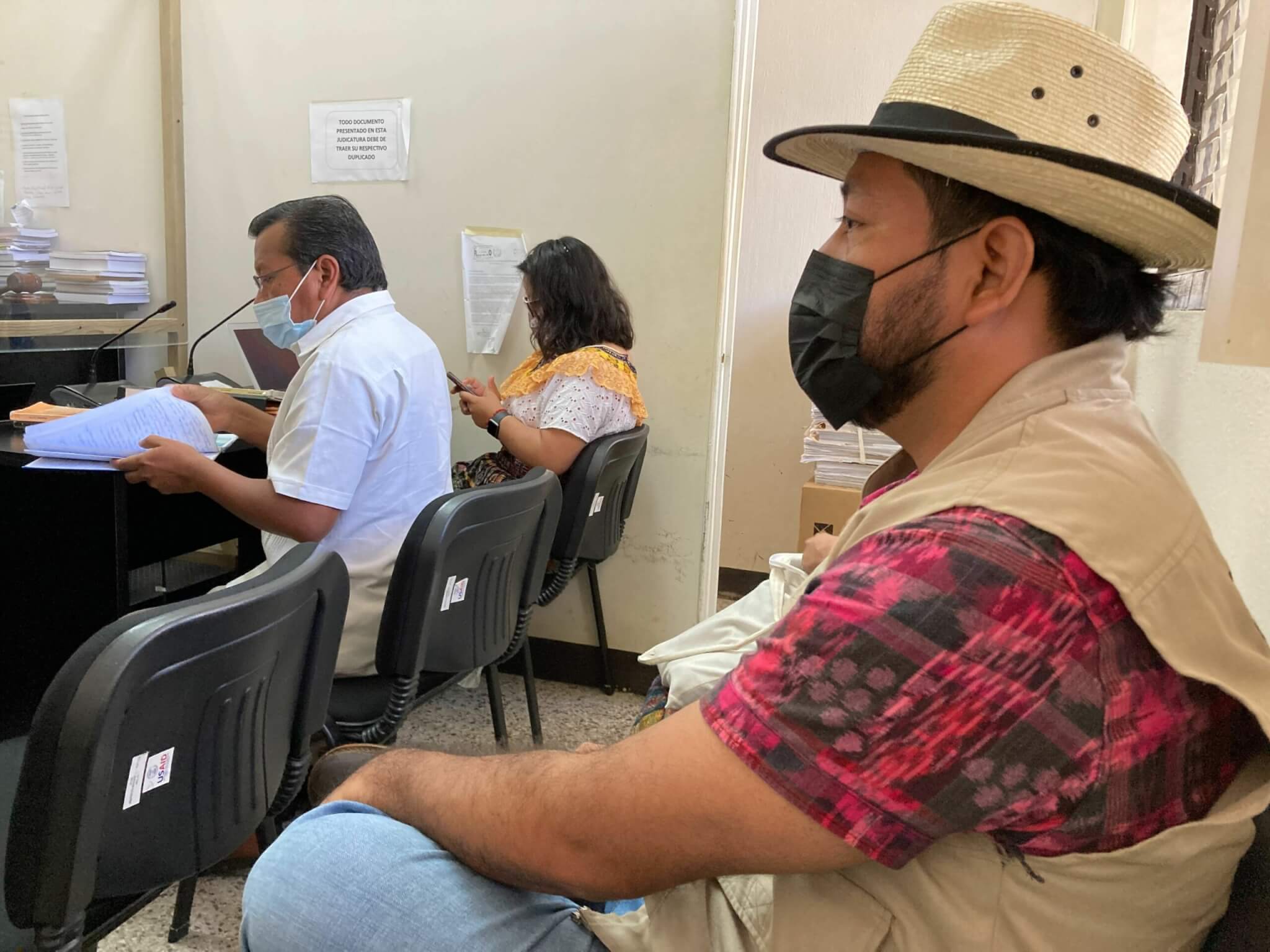
By Sophie Masson
Volunteer legal advisor
Sent to Guatemala by Lawyers Without Borders Canada to work on the criminalization of human rights defenders (HRDs) with one of its local partners Centro por la acción legal en derechos humanos (Center for the Legal Action in Human Rights, or CALDH), I have been, on an almost weekly basis, describing what I do here to friends and family. Having spent the last year working on the subject, I thought it appropriate to hopefully demystify it here.
What is criminalization?
Simply put, criminalization is the wrongful use of criminal law. Based on the Inter-American Commission on Human Rights’ interpretation, this means the “adoption and misapplication of the law to the detriment of HRDs in order to obstruct their activities” (IACHR, Criminalization of the Work of Human Rights Defenders, 2015, para. 11). It manipulates the punitive power of the State and ultimately, this undermines the rule of law and democracy as it wrongfully persecutes dissidents of the State both legally and politically.
What are Human Rights Defenders?
HRDs use their voice, either individually or in association with others, to promote and protect the realization of human rights and fundamental freedoms (UN Declaration on the Right and Responsibility of Individuals, Groups and Organs of Society to Promote and Protect Universally Recognized Human Rights and Fundamental Freedoms, Art.1). These rights and freedoms are those enshrined in international treaties and domestic law. Due to their status, they are generally constitutional. Among these, we can cite the ancestral land rights of indigenous communities, rights extremely relevant in the case of Guatemala.
The criminalization of HRDs is raising concerns across the Americas hence the development of new tools, like the Esperanza Protocol, to respond effectively to threats against HRDs. The Office of the High Commissioner of Human Rights and the Interamerican Commission of Human Rights have been particularly alarmed by Guatemala’s wrongful use of criminal charges against HRDs. These attacks against HRDs’ work are worrying given that they are preeminent actors involved in the fight against impunity, serving as an important check against the abuse of power since the dismantling of the International Commission Against Impunity in Guatemala in 2019.
Criminalization is just one of many attacks HRDs face in the country, but it is the one that can most easily be attributed to the State. The decision to prosecute is in the hands of State officials. However, a step further is taken when a right-wing “foundation” of, among others, ex-members of the military who served during of the armed conflict choose to add themselves as plaintiffs to an HRD criminal case, insinuating that HRD’s deserve the treatment reserved for terrorists. When such an association is made regarding those safeguarding the rights of others, the situation is dire.
An example: Carlos Choc
Last month, as part of CALDH’s legal team, I made the 7-hours long drive from the Capital to Puerto Barrios to contribute to the defence of the journalist Carlos Ernesto Choc Chub at his court hearing. Choc is a community journalist falling into the definition of HRDs who has investigated and criticized the devastating environmental impacts of a mine built on indigenous ancestral lands.
What stood out the most for me from the preparations made for this court hearing was the amount of coordination required for the security of the defendant. UDEFEGUA (Protección a Defensoras y Defensores de Derechos Humanos – Guatemala) which has experience in managing the risks HRDs face in the country was a great ally in this and sent along two persons to ensure Choc’s safety.
Choc was recently charged of instigating delinquency while he was covering a protest against a mining project in El Estor which did not take into account the consultation rights of indigenous communities. I was excited to attend what is called here a “first declaration” court hearing. This is the stage when the judge would, upon the prosecution’s investigation and the technical defence, agree to the charges brought against the defendant or declare the lack of merit of the case. Due to the lack of elements to support the accusations, the judge pronounced the lack of merit and underlined that whilst the defendant was evidently present on-site, he was merely exercising his journalistic duties. This was a win (and a relief for Choc!). In the ocean of wrongful accusations, where sometimes facts are manipulated to conform to the exact words of a criminal offence, this one case criminalizing journalistic work got dismissed. Unfortunately, the prosecution can continue to investigate and call for another court hearing.
Choc will have another court hearing in November 2022 about yet another case of criminalization of his work as a HRD. This goes to show just how much of a target he has become in the eyes of the State. I am eager to observe the course of this hearing, but that’s a story for another time.